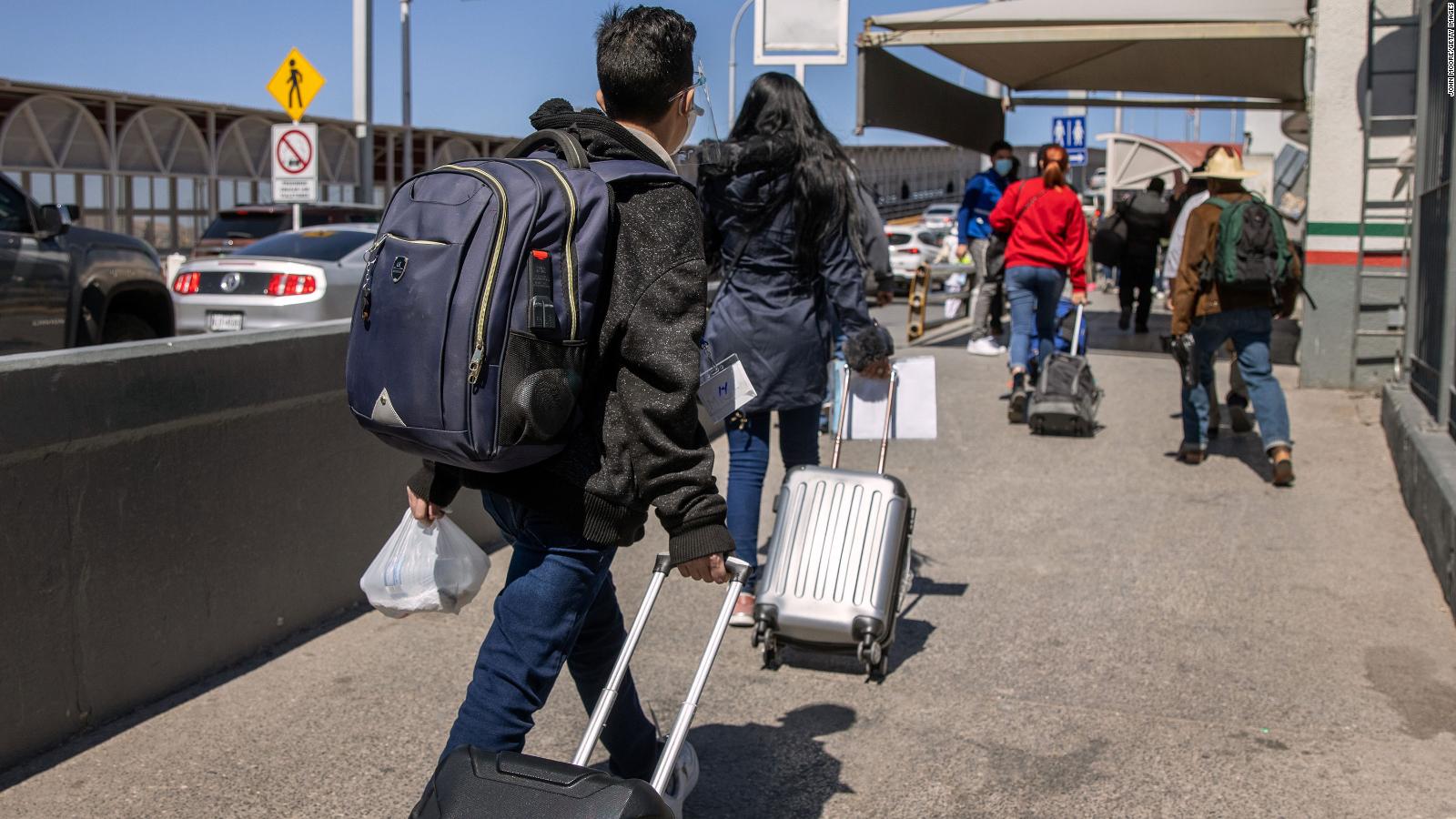(CNN) — The Joe Biden administration re-launched a Trump-era border policy known as “Remain in Mexico” on Monday, according to the Department of Homeland Security, re-launching the program that allows officials to send non-migrant migrants. Mexicans to Mexico to wait there for their United States immigration court hearings.
The policy began in El Paso, Texas, according to two Customs and Border Protection officials.
The program, which forces non-Mexican migrants to remain in Mexico until their hearing in US immigration court, was suspended at the beginning of President Joe Biden’s term and formally terminated months later.
But in August, a federal judge in Texas said the Biden administration had violated federal law in the way it had proceeded to roll back the program and demanded that it be reinstated.
The Biden administration had emphasized last week that they would re-implement the policy formally known as Migrant Protection Protocols (MPP) only because of the court order.
“DHS is closely coordinating the re-implementation of the court-mandated MPP with the Government of Mexico to address security concerns and operational limitations. DHS began the re-implementation by injunction at one location today. For operational security reasons, DHS It is not sharing details such as the location of the initial returns or the number of people included, “a Homeland Security spokesman said in a statement Monday.
Two Trump-era border policies return
With the re-implementation of “Stay in Mexico“Two controversial Trump-era border policies will be in effect under Biden. The Trump-era public health order known as” Title 42 “that allows for the swift removal of migrants found on the US border and Mexico is still in force.
The health order will take precedence over the MPPs, which means the United States will continue to expel those eligible under the health order. Those who are not expelled under the health order will be considered on a case-by-case basis to await their judicial hearings in Mexico.
The Biden administration continues to appeal the court order and plans to terminate the policy if the court allows it. Amid the appeals effort, the administration has held high-level talks with Mexico to restart the program, which requires significant cooperation with Mexico at the border.
Mexico “demanded a series of humanitarian improvements” as a condition for accepting people into Mexico under this program, one of the officials said.
The changes of “Remain in Mexico”
White House press secretary Jen Psaki admitted Monday that the government was not inclined to go ahead with the program, telling reporters that DHS implemented changes to “improve the humanitarian components.” However, he added that the administration still feels the program is “inefficient, inhumane.”
Last week, officials said the Biden administration has made several modifications, including asking all potential registrants if they are afraid to return to Mexico.
The categories of vulnerable individuals that may be exempted from enrollment in the program will be expanded to include people with physical and mental health problems, the elderly, and people at risk of discrimination, particularly those who may be discriminated against because of their gender orientation or sexual identity, the official said.
The United States also agreed to complete the court hearings within 180 days “to the greatest extent possible,” the official added.
All people enrolled in the program will receive COVID-19 vaccines before they return to Mexico, an important step for Mexico, the official said.
Access to an attorney was also a point of contention between US and Mexican officials.
Everyone on the new show will have access to a lawyer before and during their interviews about the fear of returning to Mexico, as well as before court hearings in the United States, the official added.
Another official said that transportation from Mexico to the border will also be improved.
Round-trip transportation from court hearings will be arranged, and Mexico will provide security escort to buses to and from court hearings.
Additionally, people in the program will move from Laredo and Brownsville courts to inner cities seeking refuge while they await transportation to a court hearing, the official said.
CNN’s Priscilla Alvarez contributed to this report.
–


